#ancient pharmacology
Explore tagged Tumblr posts
Text
Yoga's Potential for Neuropsychiatric Disorders: A Scientific Exploration
Yoga's Ancient Wisdom in Modern Psychiatry: A Fusion of Ancient Wisdom and Modern Challenges
Yoga’s Potential for Neuropsychiatric Disorders: A Scientific Exploration Understanding the Global Mental Health Challenge To understand mental health challenges, we must first acknowledge the shortcomings of conventional approaches. Mental illnesses, despite advancements in treatment accessibility, continue to cast a shadow on global health. The World Health Organization (WHO) has highlighted…
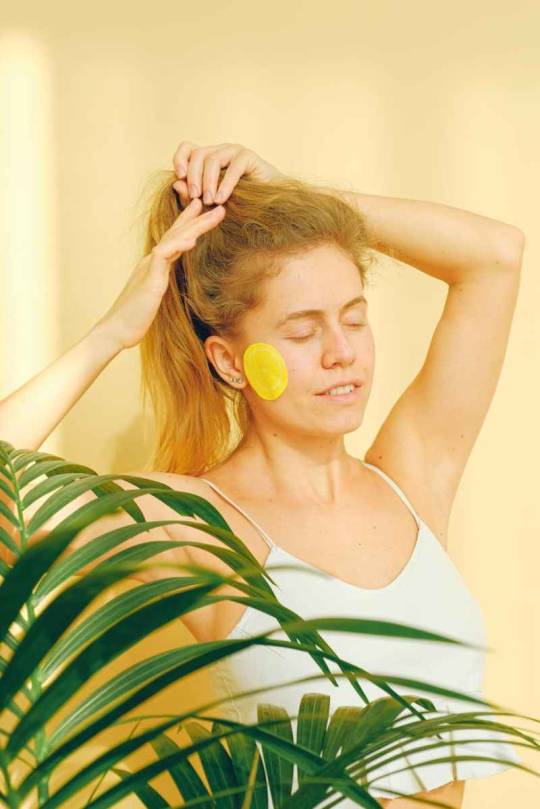
View On WordPress
#alternative therapies#ancient wisdom#annabackacupuncture#depression relief#herbs#hluse calls#Holistic Healing#Holistic Wellness#integrative healing#Mental health#mental health exploration#Mental Well-being#mind-body connection#mindfulness interventions#mindfulness practices#modern challenges#neurobiological effects#neuropsychiatric disorders#non-pharmacological interventions#Nondual Counseling#pacific palisades#psychopharmacology#redondo beach#santa monica#schizophrenia management#sleep improvement#yoga research#yoga science#zoom
0 notes
Text
#ancient dna#dna activation#genome#virology#pharma manufacturing#pharmacology#pharma news#pharmacy#sciedithub.org#sciedithub
0 notes
Text
Some type of skin (and two keys)
Simon 'Ghost' Riley x Reader
Currently crossposting previous works from AO3.
Inspired by "Some type of skin" by AURORA (I have an obsession and it's a Norwegian pale lady)
Summary: Johnny's passing has left you devastated. Simon is there to pick up the pieces, while you, although unconsciously, mend his tired heart.
CW: talk of grief, death and loss, angst, broken promises, hurt/comfort, soft Simon Riley but also angry Simon Riley. Mention of pharmacological drugs.
Masterlist 🦊

The air felt clogged; thickened and uncomfortably warm. You tried to blame it on the closed window and the unrelenting sun that reflected against the glass, but the truth was that you felt awkward in your own skin. The uniform clung to your body like a prison. Once, it had been your armor: the breathable dark green cotton of the tee, the black leather of the belt cinching your waist, until the thick camo trousers. They all felt bulletproof.
Yet, ever since you’d witnessed that bullet tearing a hole into Johnny’s head, each piece of clothing had turned into something akin to a goddamn straitjacket. It replayed in your head ad nauseam until it turned into a living nightmare. Until you saw his bloodless face in everyone around you, until you felt a hole in your own skull, as if his death were an omen of your end, as well.
For the first time in the years you had worked with the task force, you were the one who called for a meeting. Well, it was an informal encounter more than anything. A text you had sent simultaneously to all of them.
“We have to talk. Room 4A in HQ 10AM?”
By mere habit, you’d also sent it to Soap; it wrecked your heart to see the red alert on the right side of your bubble, the small Not Delivered right below it. The cracks shattered further when you received the automated response telling you that the number didn’t exist.
How could it not, when you had accumulated thousands of hours on phone calls? How could it not, when you could scroll for days on the chat and never find the first text he’d ever sent you?
You had tried, one of many sleepless evenings: your thumb almost ached due to the mere motion. Fingertip up. Swipe down. Fingertip up. Swipe down. You found it, then. Something old, ancient. The bubbles were green because iPhones still didn’t have the feature that allowed you to text using internet between Apple devices.
“glad to have you on the team. big boss gave me your number. this is soap anything you need im a text awya.”
“aywa*”
“away !!!!”
You'd laughed and it quickly morphed into strangled cries, until your vision got foggy, and your lids yielded. You fell asleep clutching the phone to your cheek.
After having spread his ashes on the Scottish Highlands, everyone had made the sensible decision of taking time off – a sort of unsanctioned compassionate leave. On the other hand, you stayed buried in the tight office you had in Stirling Lines. You couldn't handle the silence that your empty flat would bring. Granted, that didn’t mean you spent much time talking to passersby here at the headquarters, strangers and colleagues alike.
You hovered around the hallways like a specter – paled and depleted. Utterly unavailable to anyone who decided, for reasons unknown to you, to waste their breath on your person. You’d hear grieving words tossed your way, and you'd nod warmly at those. Polite. Affable. Like you’ve always been, even now that the light had been sapped out of you.
Johnny brought it with him - the light. The sun of the team: beautiful yet deadly. Necessary, but dangerous. Lethal only to those who tried to unravel his equilibrium, warm and inviting to the ones who embraced his person.
Now that he was gone, there was darkness – the world dimmed to pay its respects.
It had been eight months. During those, you had worked tirelessly to concoct a plan to have your revenge. Price sometimes knocked on your door only to find you hunched over blueprints and notes. The look he gave you each time was nothing short of pitiful. He didn’t try to stop you, but you could feel the disappointment seeping through your bones and grating them to dust.
Gaz brought you coffee, sometimes. He often came to your office, knocked softer than Price – a knuckle against wood, compared to all four of them incessantly rapping against the door. Sometimes, it wasn't coffee. Sometimes, despite how bad it might have looked, Gaz spilled a few drops of Rozerem in your chamomile tea, hoping it would force your eyes closed for some rest.
All of them, drove from their respective homes only to come and check on you. You wondered if they had an unofficial shift schedule, shared between them both.
Ghost, though. Ghost stayed.
Angrier than you. Insatiable. Raging. Went for runs at ungodly hours, when the sun wasn’t even about to peek from the horizon. He monopolized the gym of the headquarters; an easy task for him, all he needed to do was use his thousand-yard stare against the unlucky lad who dared cross the threshold. When he felt like the punching bag had taken enough of his gauzed fists, he would come to your office – sweaty and bruised. He rarely bothered to shower. He’d sit next to you, and he’d help.
Everyday.
Ever the detached bastard he'd always been, he grew closer against his better judgment. Albeit it had been years since you had joined the task force under Price’s will, Ghost had always stood several steps away from you. Yet, lately, he’d woven himself to you like a spider spinning an intricate web. He wrapped you in a cocoon, and differently from the eight-legged creature, Simon didn’t want to drain the nectar of life.
He wanted to be your armor. A panoply of rustproof iron: encasing you in chainmail, helmet, and all.
It’s why, now, as you sat on your own at the briefing room table with the increasing temperature in the room, guilt ate you from the inside. Termites feasting on wood.
The first one to enter was Kyle. Pretty brown eyes looked at you fondly, as if they were taking in a long-lost friend. He sat next to you, exchanged a few tentative words, and smoothed the hair away from your forehead. He didn't care about the grease clinging to them, instead, he grazed short nails against your scalp as he told you about his week.
You were eternally grateful for him and his tactful ability to make you feel normal when life seemed to have turned askew.
Price walked in a few minutes later. Stoic as ever, but with kindness in his blues. He held a tray in his hands, four paper cups of steaming coffee balanced on it. He set it on the table and slumped on the chair in front of you. He asked you how you were doing. You answered that you were fine. You asked it back. He answered the same. No one believed a single word.
Ghost made you all wait. You explained that he was probably at the gym, or having a late-morning run around the training grounds. If they were worried about you, the concern for Ghost was something even greater. While only Price knew of the intricacies of his past, it didn’t take a doctorate in psychology to understand that whatever had forced him to wear the skull mask was something that still haunted him in the present.
────────────
You remembered it vividly, that one evening. Life had battered you both, kindred spirits in what seemed to be the inability to grieve properly.
You, with your head propped on the armrest of the narrow couch in your office. He, slumped on the cushions as he cradled your calves in his lap. A hand absently brushed the thick cotton of your work trousers. His eyes were to the ceiling. His empty stomach growled incessantly, much like yours – both running on fumes, caffeine, and nicotine, or the occasional shared bite stolen from the cafeteria after its closing time.
As your eyelids were about to flutter closed, you heard the rumble of his voice vibrating in his diaphragm, close to where he held your feet.
“Hooked by the ribs,” he said.
The inquisitive look you sent him was missed because he didn't divert his eyes from the ceiling.
“Buried alive,” he strained, “Crawled outta my own grave.”
It hit you later, that he was sharing. You slowly sat up, pushing your torso with your tired arms. You moved gingerly, afraid a mere shift in the air would cause him to sew his mouth shut. While you had an inkling that whatever happened to him must have been gruesome and cruel, those few words (which you were sure, merely scratched the surface) already caused your stomach to churn.
“They used me, tried to break me and they did.”
Your jaw worked. Propped on your elbows, you gulped down the stone in your throat. Eyes glued to the unmasked profile – to the crooked nose, flattened by punches and butts of guns, to the divot between his lips, to the absent brown eyes with their halo of pale lashes. His fingers curled around your ankle and his thumb brushed over your sock.
“Killed my family,” he went on, and you wondered if he was talking to you at all, “Killed my nephew, too.”
Barely noticing how your eyes glazed over with treacherous tears, you bent your knees over his thighs and scooted closer. The only indication that he had acknowledged your presence and wasn’t simply musing out loud was how his palms shifted: from your ankles, up to your calves. He furled his fingers around the meaty part, while his other hand blindly went to look for your neck. He rested his palm against the side of it, let his thumb trace the outline of your jaw.
“Took everything from me, turned me into this,” he muttered, and his brows furrowed while his pupils danced over the chipped paint of the ceiling.
Half of the times you were given the luxury to gaze at the face beneath the mask, you’ve wondered where those scars came from. What kind of heroic deed had he carried out that caused each mark, or what awful act he must have committed that ended up leaving perpetual memories of it, etched in his flesh.
Never, not once, you thought someone else purposefully did it to him. Someone so cruel, so brutal, that made him regrow his skin – like a snake, shedding his frail past to build a thicker armor.
“The army left me to rot, y’know," he whispered, and although you weren't answering (truthfully, you were barely breathing) he knew you were listening.
“But not Price,” his thumb pressed into your cheek, “Not Price, nor Garrick, or you – or Soap.”
It was grimly ironic how such an idiotic callsign could bring this remarkable heaviness on your heart. The silence lingered after he uttered it, either a way to pay respect or a simple inability to continue right afterwards. Because that’s how it felt like.
Months ago, when his body flattened against the concrete of a forgotten underground tunnel, the word Soap met an end. Forever, there will be nothing else to add right after it, if not things you already knew, or heavy silence.
“Can’t lose any more people in this life,” he sighed, “Johnny must be the goddamn last, y’hear?”
You heard.
You craned your neck to the side so your cheek would slot in his palm. Saltwater dampened your skin and moistened his calluses.
“Deal,” you croaked.
He nodded, taking in your word, digesting it. A stupid promise, really. No one can pledge such a thing, but at that moment he cared very little for it. Especially when he felt your lips press against his palm.
“Deal.”
────────────
You bit your thumbnail in silence, then brought it in front of your eyes to look at the red indent around it. A droplet of blood seeped through the crack, and you suckled on it to soothe it.
Ghost abruptly walked in, the door almost flying off its hinges. He closed it behind him but didn’t take a seat. Instead, he rested his back against the shut threshold and folded his arms in front of his chest. A nod of his jaw that shifted the fabric of the balaclava was all he offered.
Now that everyone was in, the moment you had been dreading the most arrived. Albeit you had been planning this for weeks, your stomach still felt like it had swallowed a rock.
You stood up, wonky on your feet. The chair screeched as it slid back.
“I’m retiring.”
If the silence was thick before, now it felt like a boulder.
When volcanos erupt, it’s rare for lava to burst into the air and fall like sizzling rain over the landscape below it. What kills every living creature, it’s the dust that settles afterwards: it's scorching hot, stops life in its tracks.
The moment the words bubbled from your throat like molten lava, the residues puffed out of your crater and deposited on everything surrounding you. The room now felt like a ghost town, with each breathing soul inside turned into a forever statue.
The only thing that moved was Simon, who wrenched the door open and left.
𓇬 𓇬 𓇬 𓇬 𓇬 𓇬 𓇬 𓇬 𓇬
It had been weeks since you last saw him. Well, you did see him: Stirling Lines wasn't that big. But he didn't see you. He didn't knock on your door anymore and barely acknowledged your presence if he found you in his vicinity.
It felt pointless to continue your search for attribution if he wasn’t looking for it with you, so with a quick swipe of your arm, you trashed every blueprint, every post-it note, every map, and leaflet. Maybe that would grant Soap some rest as well.
A signature away from your departure, you were lying in your bed, ready to knock yourself out with a few droplets of benzodiazepine. The route to the comatose dreamless night that awaited you, though, was interrupted by a series of raps against your door.
After years in the military, you had developed quite the remarkable hearing – if one was willing to exclude the tinnitus. It meant you could recognize whose footsteps belonged to whom, whose breathing was coming from whose mouth, and which knock pertained to which hands. You knew these knuckles, indeed. Hastily tossing your legs over the edge of the bed, you padded your socked feet against the linoleum of your private quarters. Fingers shakily curled around the doorknob, and you yanked the door open.
It wasn’t like in movies, when after such a long absence time slows down when your eyes touch, no.
It was raw, irate, and spiteful.
Simon placed a thick hand on your shoulder and shoved you aside to barge in. You barely managed to recollect your balance when he slammed the door closed behind him. He looked around the room as if searching for something but not being quite sure of what. Habit, you thought.
Brown eyes that never showed much of the constant turmoil brewing in his head now landed on you sizzling with hatred.
He yanked the mask off. It fell limply to the ground.
His cheeks were flushed, whether from the warmth that had been building behind the cheap fabric of the mask or from hot anger, you couldn’t tell.
"We had a deal.”
It ripped the air from your lungs, vacuumed them clean, and ironed them flat. Your hand flew at the base of your throat, fingers nervously rubbing against your collarbone.
His voice was clouded by an unbreachable fog of anger. You felt as if you were sailing through the ocean on a moonless night, only darkness ahead of you and a single oar in your hands. That’s how it felt to navigate through Simon Riley, even now that you had managed to have a grasp on the person he was.
Your pupils traveled along his person to settle on his face, not jaded like usual but contorted in a scowl. The strain at the junction of his jaw wasn’t a new sight, nor were the taut tendons of his neck.
Sometimes, he’d fall asleep on the couch in your office; your head on his shoulder or cradled in his lap. You’d wake up then, at the sound of teeth grinding. Bruxism in his sleep, jagged sounds that made your hair stand on end. Gingerly, you used to lift your hands and press the tips of your fingers at his jaw hinge, massaging the spot until he stopped.
You wished you could do it now.
"I’m sorry," you replied calmly, trying to quell his spirits and failing spectacularly.
He took hasty steps around the room, pacing like a lunatic. You didn’t have the guts to walk closer to stop him, not yet. What left his lips next, though, made you want to crumble to the floor like a house of cards.
“Leaving ‘cause I told you all tha’?” he snapped, “’cause you can’t handle another broken case to add to your file?”
Fear of approaching him left your body like steam from a cup, indeed that’s what you did. As he relentlessly paced around the cramped space of a military-issued room, you stopped him with a gentle hand on his bicep.
He froze and yanked his arm away. Your palm like blistering coal against his skin.
You knew he was as hulking as they come, you knew he was built like a goddamned brick house, and you knew he towered over you (he towered over most, in your defense). Yet, nothing could have prepared you for the way he languidly turned to face you, looking down. You craned your neck back, otherwise your eyes would only meet his collarbones, peeking through the loose black tee he was wearing – casual comfort clothes he wore to sleep at night, those few times he did.
"Never think that,” you stated, stressing the adverb, “Never think that.”
You swallowed thickly, yet your eyes never wavered, "I – It’s complicated,” but it truly wasn’t.
Your expression softened, but you knew it would do little to smother the flames in his eyes, ready to flatten the entirety of the room.
"After Johnny, I couldn’t anymore,” you whispered, “I can’t, Simon.”
The defeated tone of yours had the bite of a skillfully honed blade. It cracked his ribcage open and stabbed the heart he didn't think he owned anymore.
He murmured then, eyes narrowed, “The fuck you mean you can’t?”
Your mouth curled down and you rolled your lips between your teeth. The tip of your tongue soothed a crack in the skin.
"I'm scared," you wheezed as if the words were difficult to utter. Scared of loss, scared of death, scared of pain, scared of scars, both physical and mental. Scared of the future, scared of your past and his, scared it would haunt you until you'd turn cold and stiff - all the people you've killed and those who survived. Fear, in its unfettered, most gut-wrenching form.
He tongued his cheek, somewhat irritated by the statement. He let the words stick like molasses to his eardrums, muffling each sound. Simon wasn’t a stranger to fear; he walked with it hand-in-hand, a faithful companion that never left his shadow. Yet, he hated that you were feeling it because in his mind you didn't deserve it.
He would have liked to tell you that, but words always failed him when he needed them the most.
"Thought you’d have grown thick skin by now," his voice was low, controlled, and deadly. Meant to hurt, meant not to graze but to cut. It was all he knew, how to hurt – especially when he was aching as well.
You looked up at him through the furrow of your brows, brief anger flashing in your eyes. You set it aside, instead opting to cast your gaze sideways. You cupped your elbows in a sort of self-reassuring hug, thumbs indenting in the flesh of your biceps.
"I wish I did,” you murmured, “Can’t grow that type of skin, it seems.”
He wanted to rebuild the cocoon he had so carefully crafted around you. He wanted to go back being the shield that kept you from any harm. The chainmail that prevented each stab.
He wanted to be that skin you didn’t seem to grow, like a reptile losing its inborn ability to replenish its flesh.
Johnny’s passing took his cold heart and thrashed it. The bond he deepened with you afterwards made it regrow. He wondered, when he'd look at you during those days, as you leeched your brain dry over blueprints and notes, if you were aware of it.
You scared him most delightfully, and he thought whether his heart should reveal itself to be more than a muscle, or a fist covered in blood.
That's why the resentful look in your eyes felt like fresh water on the fire in his chest. How could he let you drain yourself dry over this, when you had been the only light the moment his world blew out each candle.
So, his anger took the backseat, and he sighed. Drawn-out, long, and tortuous.
“Where you goin’, then?” he said, softer.
You felt it, the sorrow of his tone. It made your head swivel in his direction. You blinked, opened your mouth to answer, and hesitated.
“Bury,” you breathed, “Bury St. Edmunds.”
His eyes narrowed in thought: you could almost see the map of England he had cast in front of him reflected in his pupils.
“’s about a four-hour drive from here," his voice trailed off.
"Yeah," you mused, slightly confused by the abrupt switch in his behavior. But you weren’t one to look a gift horse in the mouth, were you?
Instead, your hands slid up your arms soothingly, "Found a nice flat there, in the city center.”
You shrugged, trying to act as if it wasn’t a big deal, although Simon could tell it was by the way your eyes twinkled at the mention. Something new, something fresh that promised a new beginning, away from bloodshed and loss, closer to warmth and familiarity.
Closer to home.
"It’s nice. It has a small balcony that faces the cathedral,” you went on, sounding almost bashful, “Was thinkin’ about growing my own herbs? Like basil, and such.”
He didn’t reply or move. Barely breathed.
Just stared.
Stared at the soft expression on your face, at the way your lashes framed your eyes. Stared at the way your lip trembled, ever so slightly, as you blabbered about such ordinary things like balconies, and churches and bloody herbs.
He could already picture you with dirt under your bitten fingernails as you dug into brown, ceramic vases, refusing to wear gardening gloves.
He could hear your bare feet padding against the hardwood floor as you went on to brew your tea. Or the squeaking sound of the cushions of a leather couch as you dropped on it, without a care in the world, holding a book by its spine.
You truly disarmed him in that simplicity – a dress he realized he would’ve loved to see you wear more often.
You seemed unaware of the subtle awe that glinted in his pupils, since you went on to add how the flat had a guest room – although it completely flew over his thick head. What did reach his eardrums, though, was what you said next, "And it has two keys."
He snapped out of his reverie and swallowed.
"Two keys," he echoed.
His willpower felt as thin as an ice slab under the blistering sun. It melted pitifully and turned into a warm puddle in his chest. Nothing could’ve stopped him as his feet marched to you, closing both physical and emotional gaps.
He palmed your cheek and whispered with certain hoarseness in his voice, "Two damn keys.”
Your heart swelled three times its size. You swore you felt the indents left against it by each rib. Leaning your cheek against his hand, like you’d done many nights before, the most subtle of smiles graced your features.
Simon vowed he’d fight tooth and nail to see it grow.
You whispered, then, "If you want, you can just drive those four hours 'n pop in. I'll make you a cuppa, maybe take you for a tour around Bury.”
His eyes softened – crinkles at the corners and brows twitching in the middle.
"Four fuckin' hours for a cuppa and a tour,” he mumbled, "What are you, the Queen of England?"
You huffed a chuckle, pretending to find his sarcasm annoying by adding a roll of your eyes. Truthfully, you’d pay good fucking money to hear it daily.
"I'm gonna need the spare key, though" he whispered, his thumb brushed your cheek reverently.
You lifted your hand to trace his often-cracked knuckles with the pads of your fingers, “Not a spare key – your key.”
Simon swallowed thickly again. He ran his tongue over his teeth, clamping his jaw shut. His gaze hardened, his pupils danced about your face, awfully concentrated, as if he were refraining from doing something.
His sudden silence made your resolve waver. You removed your hand from the back of his, curling your fingers as if you were touching some hot surface. It stayed there, furled in a loose fist in the space between your chests.
“You could come and spend your leaves there," you whispered tentatively, "Leave your things at my flat, so each time you come over they're already there."
It took all your courage to speak, but you knew the die had been cast already. The only thing left for you to do was to simply go for it and take the damage, or leave victorious.
"Until it's full of you,” you released a shaky breath, “Until it's your little flat, too."
Simon’s breath suddenly shortened. He'd never felt at home, not even when he was supposed to have one. He'd come close to it when his brother got clean and managed to build a family for himself, or when the task force was tight-knit, with Johnny chatting his ear off with his incomprehensible Scottish lilt. But it was never his.
This, though.
He’d be damned if he let it slip through the cracks of his fingers.
"Until it's our flat," he breathed.
His other hand reached out as well, and he placed it on your opposite cheek, "Until it’s our little flat.”
You’d be lying if you said those weren’t words you had been reciting in your head ever since you put in your retirement request. Ever since you started looking for a flat that could host two people instead of one.
Indeed, you’d naively thought that the moment they would be uttered (if ever) you would have been ready for them. But you weren't, not at all – they felt like a gut punch.
You had to bite your lip to repress tears that had treacherously made their way into your eyes, now glossy and a little wide. To think that you were able, somehow, to give him some reprieve from a life that seemed to not want him, gave you incommensurable joy.
"Our home," you croaked.
"Our home," he echoed languidly, with a thick voice, as if it hurt to speak, "Our bed. And our bloody balcony on the cathedral, and our sofa, our kitchen, and – “
He paused. Swallowed, seemingly torn. Words seemed to fail him again, but he didn’t let them – not this time. He’d fight through the fear of it all being the umpteenth joke life was taunting him with. Not you, never you – his one good hand in a lifetime of poor draws.
"And every – fucking – thing in between."
You chuckled. It’s wet with tears and disbelief.
Oh, to see him thrive in anticipation for something, instead of dreading what life has in store for him.
Your hand left the gentle grip it had on his knuckles, and you cupped his face as well – mimicking how he was holding yours.
"Every," you whispered, "Bloody, fucking thing," and nudged your nose with his, "In between."
Your lips landed on his instantly.
It was stupidly clumsy at first because you were both torn in half between what felt good and what was right. His tongue slipped between your lips as soon as you parted them for air; your teeth clacked together. You chuckled against his lips; he drank it like an oasis. His life parched of what you could give him, what you were giving him.
It took him a moment to get used to the sensation, to adjust to you. But when he finally did, he kissed you back ravenously, nothing shy from desperate. He craved your touch so fiercely. A push and pull of wandering hands, tangled in your hair and yours in his.
You were finally back where he wanted you, in the cocoon he crafted just for you, made with his flesh. He held you to his chest as if his ribcage could open and like bony fingers wrap around you and keep you safe.
He placed his foot between your legs, pushing them open. You complied when he gently nudged your knee so you’d fall back against the mattress.
Eventually, your lips parted, yielding to his, to a shared breath.
You were positively flushed, breathless, and limp in his grasp. He thought he'd never seen anything this breathtaking.
You smiled, all teeth and creases at the corners of your eyes, cheeks tipped pink as they pushed against your eyes – little crescents he’d look at for days on end.
Simon was left a little dumbfounded, though, when you squirmed under his weight to extend an arm. He followed it with his eyes and saw your hand struggling to fumble with the drawer of your nightstand. You pulled out a key and held it in the space between your faces.
"Your key," you whispered bashfully, as if unaware that the mere sight sent Simon's heart into arrhythmia.
You placed a soft peck to his lips, "To our home."
Simon let out a staggered exhale. He wrapped his fingers around the key, closed his fist around it.
A symbol of a new beginning, one that Simon finally didn’t dread. Something good rippling through his life like fresh water, even amidst the mud of shared grief and loss.
We're good people,
And we both deserve peace.
"To our home," he whispered back, "To our home."
And let breath be air,
And love the things I know might disappear.
And the last light of the sun
I let it slow me down
I'll crawl where everybody runs.

#simon riley#simon ghost riley#simon riley x reader#simon ghost riley x reader#call of duty modern warfare#cod#cod mw2#fanfic#archive of our own#ao3#ghost x reader#soft simon riley#foxy
174 notes
·
View notes
Note
Just asking, uhh, how many subjects seem to be in nrc? because it seems like a lot but at the same time is like no one talks about it (or maybe I'm just a little bit crazy about this nonsense...)
We don't have an exact number of subjects offered at NRC. However, I'd imagine that NRC offers a wide selection so that students can choose to study or specialize in the kinds of magic they are most interested in. Judging by the generous spread of industries mentioned in book 7 for fourth year internships, it'd make sense that NRC would have many courses to prepare students for various career paths after graduation. The subjects are not usually mentioned in main stories and events (where the bulk of dialogue would be), as academics are (ironically) not that relevant to the plot. In fact, it's actually in the vignettes where we often hear about the more obscure subjects, hear clarification on what certain classes involve, and other details.
The subjects we explicitly know about right now are:
Alchemy
Ancient Curses or Incantations/Ancient Magic
Animal Linguistics (it's not clear if this is separated by animal type such as Cat or Mouse being in separate variants of this subject)
Art (as in, visual arts)
Astrology
Abbreviated Spellcasting in Ancient and Modern Magic: Changes and Comparisons (an elective; have to choose between this or Poison Refining)
Biology (might be considered part of the magic science courses rather than biology being its own class)
Chemistry (might be considered part of the Potions courses rather than chemistry being its own class)
Defense Magic/Protection
Flying/Flight (might be considered a part of P.E.)
History of Magic (implied to be taught in segments; there is History of Magic I for first years, History of Magic II which covers new material for second years, etc.)
Magical Analysis/Enigmics
Master Chef/Culinary Crucibles (an elective)
Mathematics (not specified; not sure if this is its own separate course or if it is just integrated into other coursework)
Music/Musicology
P.E./Physical Education
Poison Making/Poison Refining (an elective; have to choose between this or Abbreviated Spellcasting in Ancient and Modern Magic: Changes and Comparisons)
Potions or Magical Pharmacology/Potionology
Practical Magic
Summoning
Swimming (might be considered part of P.E.)
Technomantic Engineering/Magic Energy Engineering
#twst#twisted wonderland#disney twisted wonderland#disney twst#twst en#twisted wonderland en#notes from the writing raven#question#twst resource#twisted wonderland resource
215 notes
·
View notes
Text
marauders at university part 1
james - business
u cannot tell me james isn't a finance bro who exclusively wears collared ralph lauren shirts and sambas/clogs
probably president of the business society, too. he's known for organising the most chaotic parties/pub crawls
plays rugby for the university team
sirius - quantum engineering/music composition
overachieving little fucker just had to do a double degree with the least compatible degrees ever
i can imagine sirius, sat at the potters' kitchen table with his hair in a messy bun and drinking straight from a bottle of red wine while working through a coding task
always hands all his assignments in seconds before the due date
remus - history/english
he gives ancient history professor so of course he'd have to study something to do with history
ended up writing his doctoral dissertation on old welsh civilisation
has a crazy arsenal of historical facts that he'll share if one (1) drop of alcohol enters his system
peter - education/arts
does NOT gaf about becoming a teacher but chose it to 'keep his options open'
majors in polish
probably a part of a fortnite society or something icl
lily - pharmacology
i feel like muggle lily would do med/pharm bc witch lily did healing/alchemy
tortured academic who does all the extra reading
she brought a sleeping bag to the library during exam season
mentors younger students in biology and anatomy
mary - fashion design and textiles
for mary, university is a Very Serious outfit competition and she must look hot Always
except there are people like peter rocking up in their pjs
lugs her portfolios around in her shoulder bag bc she refuses to wear a backpack (it would kill her swag)
marlene - media/film studies
either this or zoology 🤔🤔
part of the theatre society and acts in their plays/skits
also leaves all her assignments to the last minute and pulls all nighters with sirius
most of which just consist of gossiping and yelling at the other to lock in (they're both living off 4 coffees and an iget bar)
#this post shows that uni really is just about drinking#marauders#marauders hcs#marauders modern au#remus lupin#sirius black#james potter#peter pettigrew#lily evans#mary macdonald#marlene mckinnon
99 notes
·
View notes
Text
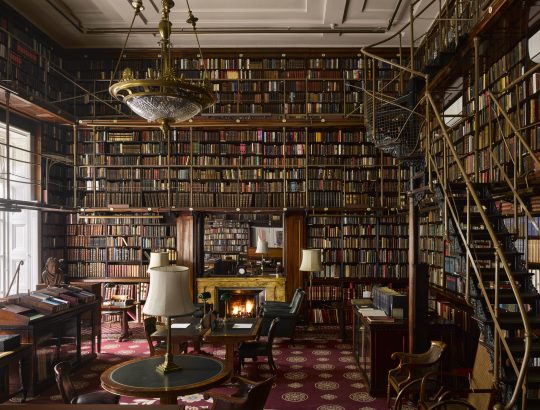
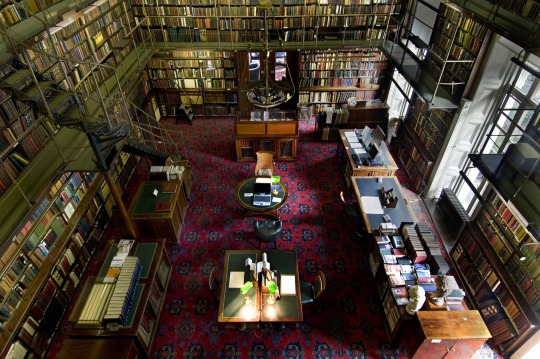

O praeclaram supellectilem libroru *
Cicero
Oh, what fine furniture books are! *
The Athenaeum Club library.
The Athenaeum tends to attract the cream of the academic world (over 51 Nobel Prize winners) in literature and science.
The Pall Mall-based club was established in 1823 and is named after the ancient Roman Athenaeum, the centre for the study of literature and science.
Sir Charles Darwin used the Athenaeum to study in 1838. In one letter, dated August 9, he said: "I go and dine at the Athenaeum like a gentleman, or rather like a lord, for I am sure that the first evening I sat in that great drawing-room on the sofa by myself, I felt just like a duke. I am full of admiration for the Athenaeum, one meets so many people there that one likes to see … Your helping me into the Athenaeum has not been thrown away, and I enjoy it the more because I fully expected to detest it."
Breaking 150 years of tradition, the 2000 members of the gentleman's club for the 'intellectually elite' voted to allow women to become members in 2002. Baroness Susan Greenfield, professor of pharmacology at the University of Oxford, was the first woman invited and others have followed since.
Hands down one of the best libraries in club land. But they also have the most intrusive librarian with the beadiest eye to keep watch on you from her desk.
#cicero#latin#classical#quote#library#books#the athenaeum#athenaeum#gentlemens club#london#pall mall#club land#private members club#science#literature
297 notes
·
View notes
Text
The Shadow (Ivy) Background Story
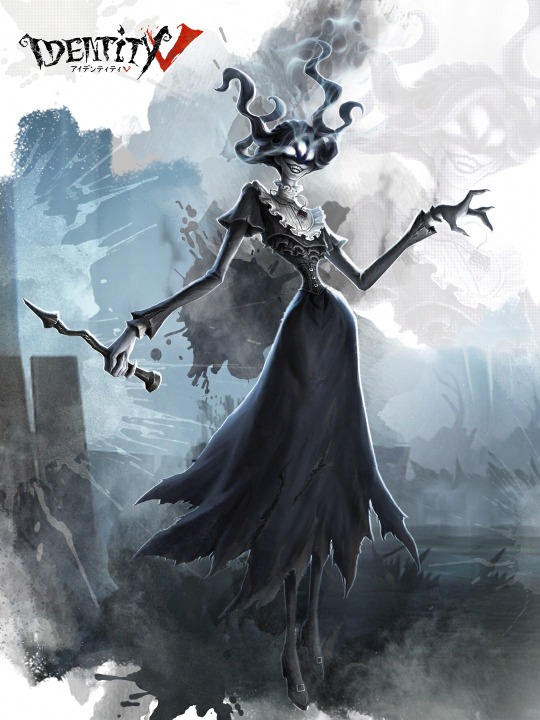
Almost all the residents of the town know the Lawson family, the "back-to-back sisters". From the moment they were born, they were determined to die soon. Fortunately, their father and mother refused to give up on them out of their devout faith and gave them names - Ivy and Edith. Young Ivy still remembers how the laughter and joy at home melted into silence, and how the "well-intentioned" temptations from outside the wall turned into malicious temptations.
The resistance to the surroundings and a decision took root in Ivy's heart - her stubbornness did not lead to the ideal result. Severe wound infection took away Edith on the sixth day after the separation operation, and also gave her a disability that could kill her at any time. Looking directly at Edith's face for the first time, young Ivy felt a huge absurdity: when the soul left Edith's body, she almost felt her own death.
"Freshmen" have always been prepared for desperate people. During the few years that Ivy traveled across the ocean and came to a new school, she showed amazing academic talent and made friends with similar fates to herself. Unlike her friends who are obsessed with the field of spiritual healing, Ivey has shown an extraordinary interest in soul science, and then believes that once the soul and spirit can be accurately described, measured and studied, this transcendent and ultimate knowledge will, will be able to fill the deepest void in her heart. Perhaps moved by her obsession, her friends' initial confusion about her research gradually turned into encouragement, and they even provided some pharmacological technical support from the perspective of spiritual research.
However, as the research deepened, Ivy discovered that she suffered from intermittent amnesia and was always immersed in some dreams that gave people a weird feeling. But this was not entirely a bad thing. In that short memory gap, Ivy experienced the feeling of leaping across time, from a moment in eternity, to jumping lightly and flexibly to the "now". The ancient earth, the huge and lush primitive vegetation, and the smell of minerals in the water seemed to have dissipated from us not long ago. Unfortunately, this situation did not last long. After completing hee studies, her friend left, and the feeling became increasingly dilute, until Ivy received some fragments of literature and a diary, the contents of which could provide a complete explanation for his bizarre symptoms. Explanation of. Even though the recorder has quite professional academic qualifications, these words still seem like the crazy words of a mentally abnormal person: an extremely ancient existence that travels freely through different spaces and times and firmly occupies the captive's mind. Brain and mind.
Ivy took the initiative to grasp this fragile straw. When she was conscious, she felt that she had transformed into some kind of indescribable alien, with three huge eyes unnaturally embedded in the eye sockets, and her human throat uttered some incomprehensible and wild syllables, but she Believe that this is a "gift".
Gradually, Ivy stopped showing up in school. No one knew whether she locked herself in her room again or went away.
59 notes
·
View notes
Text









Scientific Method of inquiry into Truth & the Mandukya Upananishad Part 1
With change in perception or state of Consciousness— experience is changed. This is the basis of revolutions in scientific paradigms— we are locked into a ‘normal’ worldview, until sufficient understanding has accumulated, to shatter a previous worldview with another, through a leap of sorts.
Consciousness IS that perception-continuum & with altered states of Consciousness or purposefully changed perception, our experience (experiential reality) also changes. We modulate perception, with procedures (pharmacologically, meditatively, shamanically, or magically), & so change our expirential reality, the world of effects & results. We say, I changed my frequency & the world is uplifted. Something is true for us, when it is an experience, an experiential result we are having that we can write down.
In the Ancient times, the means by which, perception was altered, was called magick. Magick is of the realm of mind, idea & imagination.
In the tradition it is Maya or ignorance, ignorance in the sense of the Fool tarot card or archetype— that external appearance is conjured, through the seeds of the beliefs held within, that unfold in the dramas of our lives— we are fooled to (mis)take the world of effects, of change & show, for ultimate reality.
With mind-shifting techniques, & cognitive neuro-reprogramming or magick spells etc. we can alter the world of effects, we can move things around on the stage (without the seed causes being accessed) & change the truth of our experience. (More on Magick & the Mandukya Upanishad to come).
The leap required here is that, in the lesson that we can change our perception (state of Consciousness on the perception continuum of Consciousness, we ordinarily call mind-power), as much as we want, & so change our experience of the world, implies that perception is not & never was the truth. The truth itself, is not of the nature of perception, it is of the nature of realisation.
Only the leap of realisation or transcendence of all states, is truth.
Truth is not a perception.
You can change & rearrange the world of effects as much as you please, & there is nothing wrong with doing that through the power that is the mind, as humans we all do it, but it remains the world that is on the stage, the show, not the foundational truth.
We may enter a meditative or reflective state of Consciousness or a rite (by procedure & practice) & we may experience the result— of the leap of Consciousness into Self-knowing, known as transcendence of states or turiya.
#consciousness#spiritual#awareness#presence#spirituality#heart#selfrealization#nonduality#advaita#divinemother#Mandukya Upanishad#scientific method#scientific revolution
10 notes
·
View notes
Text
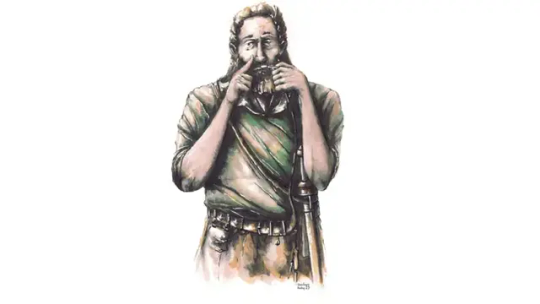
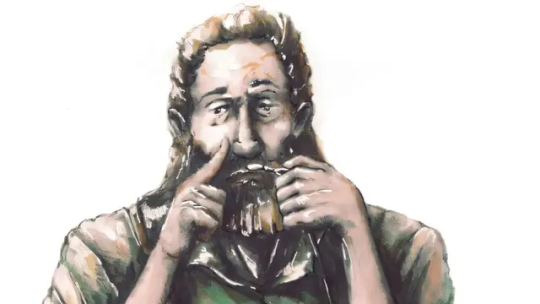
Roman Era Barbarians Carried Tiny Spoons and Snorted Stimulants in Battle
Tiny spoon-shaped implements carried by Roman era Germanic warriors may be evidence they used stimulants on the field of war.
According to a new analysis of the mysterious artifacts and their context, archaeologists and biologists believe that the suspiciously round-ended fittings could have been used to dispense drugs that gave the warriors an edge when they faced their opponents thousands of years ago.
What those drugs actually were is unknown; we'd have to find some evidence of them, such as residues, and that can be challenging after thousands of years have elapsed. But the concept isn't without precedent; and, if it can be validated, the team's hypothesis could reveal evidence of drug use among cultures outside of the Roman Empire.
This would be a big deal: although the use of drugs like opium is well documented in Greece and Rome, the use of narcotics and stimulants in ancient times outside of this region remains a mystery. Historians have previously assumed that the only drug that really saw use by the barbarians was alcohol, at least until much later in history.
Biologists Anna Jarosz-Wilkołazka and Anna Rysiak, and archaeologist Andrzej Jan Kokowski of Maria Curie-Skłodowska University in Poland, thought mysterious spoon-like implements might have been evidence to the contrary.
These strange objects keep turning up in the Roman-era burial sites in what are now Scandinavia, Germany, and Poland. Their handles measure 4 to 7 centimeters (1.6 to 2.8 inches) in length, with a bowl or flat disk on one end measuring 1 to 2 centimeters in diameter. They were often attached to the belts of men, but played no role in how the belt functioned.
The team made a careful study of these spoon-like objects, measuring them, studying how they were included in the grave goods, and the context in which they were buried. They cataloged 241 spoons from 116 localities, and made some interesting observations.
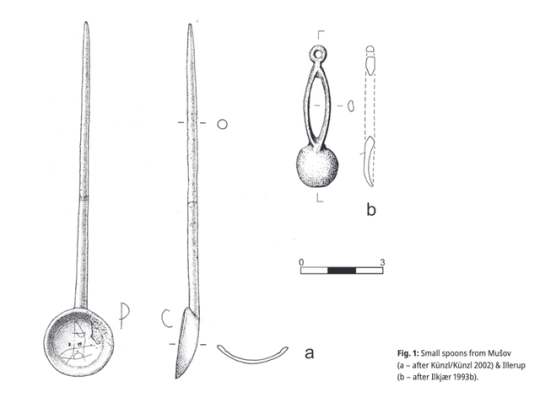
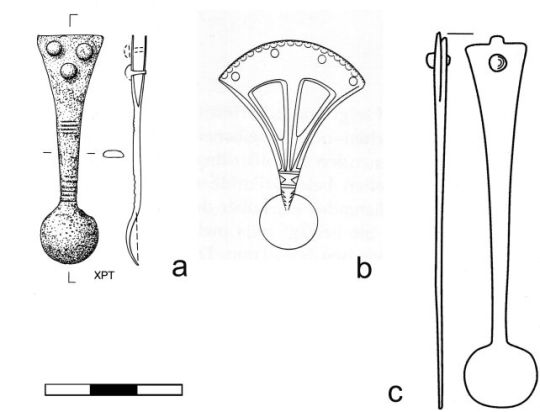
One of the most telling was that the spoons were often included among the accoutrements of war. They were found at war sacrificial sites, directly linking them to warriors; or accompanied by elements of weaponry.
"This," the researchers write in their paper, "allows the thesis to be put forward that this utensil was a common part of a warrior's armor, and from here it is close to concluding that pharmacological stimulation of warriors in the face of stress and exertion was the order of the day."
It's certainly not unheard of. For just a handful of examples, during World War I, cocaine was used liberally. During World War II, both Allied and Axis forces made heavy use of stimulants such as amphetamine and methamphetamine. Between 1966 and 1969, US troops were issued 225 million stimulant pills, including the amphetamine Dexedrine. There are even reports of amphetamine use by Russian soldiers in the ongoing war on Ukraine.
With their thesis established, the researchers then investigated the materials available to the Germanic barbarians which may potentially have been used as stimulants. There were quite a few, including funguses, opium poppy, hops, hemp, henbane, and nightshades such as belladonna and datura.
It's unclear which of these plants, if any, were used by the tribes. But humans have a long history of altering their experience of the world around them with drugs, dating back millennia. It seems unlikely that the Germanic barbarians of the Roman era would have used no drugs whatsoever.
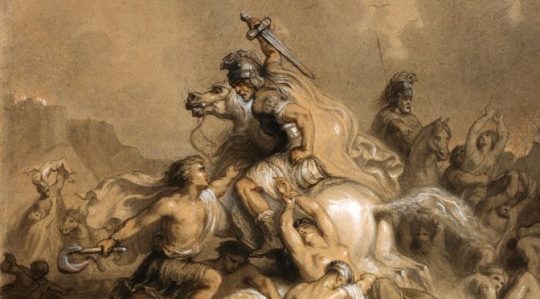
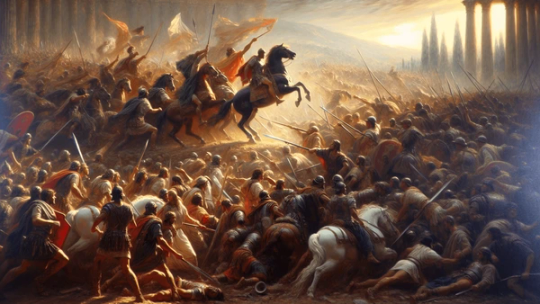
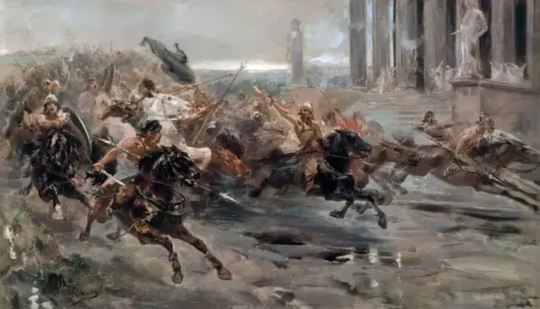
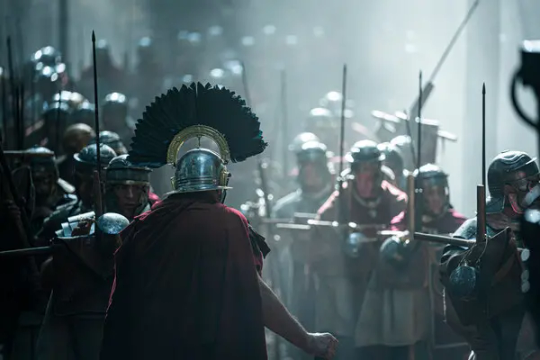
#Roman Era Barbarians Carried Tiny Spoons and Snorted Stimulants in Battle#germanic tribes#drugs#ancient artifacts#archeology#archeolgst#history#history news#ancient history#ancient culture#ancient civilizations#roman history#roman empire#germania
17 notes
·
View notes
Text
I've just seen some random antivax use Ancient Greek to "prove" that, because pharmacology derives from φάρμακον (drug) and φάρμακος (magician/poisoner), it was proof that medicine/vaccines was Bad™ and Witchcraft™ I've seen a lot of brainrot in the past few years but this one's new to me and I'd cry if it wasn't so fucking hilarious.
108 notes
·
View notes
Text
Some scholars have written dedicated research on the topic of religious and recreational usage of psychotropic plants in the ancient Greek and Roman World.
Carl Ruck, Albert Hoffmann, and Robert Wasson wrote The Road to Eleusis (1978), which sets the stage for exploring the use of entheogens in Greek and Roman culture. Ruck has additional publications, which focus on recreational and religious intoxication.
D. C. A. Hillman wrote The Chemical Muse (2008), where he covers drug usage in the ancient Greek and Roman world, including recreational, religious, and medical.
Michael Rinella wrote Pharmakon: Plato, Drug Culture, and Identity in Ancient Athens (2011), in which he delves into psychotropic plant usage in the ancient Greek world, the problematization of drugs, and the scandals surrounding Socrates and Alcibiades.
Alan Sumler wrote Cannabis in the Ancient Greek and Roman World (2018), in which recreational intoxication and other settings are explored.
[...]
In the field of ancient Greek and Roman religion and magic, some scholars have covered psychotropic plant usage. John Scarborough’s “The Pharmacology of Sacred Plants, Herbs, and Roots” (1991) covered these plants as used in ancient magic and explained the ancient rationale behind how they worked. He has also covered these plants in ancient medicine.
Christopher Faraone, in Ancient Greek Love Magic (2001), wrote about these plants as they are used in love magic and how they appear in other settings, like law courts.
Georg Luck’s Arcana Mundi (2006) covers these plants as they are found in religion and the personal practice of magic.
Alan Sumler, in “Ingesting Magic” (2017), considers these plants in magic and recreation.
On psychoactive plants found in ancient wine, Patrick McGovern, author of Uncorking the Past (2009), has written the most. His molecular analysis of ancient wine shows that the drink had multiple ingredients, many of them psychotropic. He describes the usage of intoxicating drinks all around Europe, Asia Minor, Egypt, and the Black Sea. McGovern covers recreational usage of drugs in the Greek and Roman world.
In the field of ethnobotany, there is scholarship on psychotropic plants being used in different settings in the Greek and Roman world. The assumption is that these psychoactive plants grow all over the earth and that all cultures use them for mind alteration in some way.
A recent multiauthored volume from Routledge, A Companion to Ecstatic Experience in the Ancient World (2022), covers psychotropic drug usage in the Mediterranean world going back to the Bronze Age.
Philip Wexler edited a two-volume multiauthored, text (2014, 2015), The History of Toxicology and Environmental Health, which covers many instances of recreational intoxication in the Greek and Roman world.
Some articles in scholarly journals are helpful for becoming familiar with psychotropic plant usage in the ancient world. Merlin, “Archaeological Evidence for the Tradition of Psychoactive Plant Use in the Old World” (2003), covers psychotropic plant usage throughout all ancient cultures. Carod-Artal, “Psychoactive Plants in Ancient Greece” (2013), considers substances available in the ancient Greek world. A few articles focus on Classical Greece, for instance Arata, “Nepenthe and Cannabis in Ancient Greece” (2004), and Eleanor, “Flower Power in Medicine and Magic: Theophrastus’ Response to the Rootcutters” (2006). The topic of kykeon at the Eleusinian Mysteries has produced some interesting scholarship, for instance Perrine, “Mixing the Kykeon” (2000), and Rosen “Hipponax fr. 48 Dg. And the Eleusinian Kykeon” (1987).
-- Alan Sumler, Intoxication in the Ancient Greek and Roman World
8 notes
·
View notes
Text
Yoga's Potential for Neuropsychiatric Disorders: A Scientific Exploration
Yoga's Ancient Wisdom in Modern Psychiatry: A Fusion of Ancient Wisdom and Modern Challenges
Yoga’s Potential for Neuropsychiatric Disorders: A Scientific Exploration Understanding the Global Mental Health Challenge To embark on a journey of understanding mental health challenges, we must first acknowledge the shortcomings of conventional approaches. Mental illnesses, despite advancements in treatment accessibility, continue to cast a shadow on global health. The World Health…

View On WordPress
#alternative therapies#ancient wisdom#annabackacupuncture#depression relief#herbs#hluse calls#Holistic Healing#Holistic Wellness#integrative healing#Mental health#mental health exploration#Mental Well-being#mind-body connection#mindfulness interventions#mindfulness practices#modern challenges#neurobiological effects#neuropsychiatric disorders#non-pharmacological interventions#Nondual Counseling#pacific palisades#psychopharmacology#redondo beach#santa monica#schizophrenia management#sleep improvement#yoga research#yoga science#zoom
0 notes
Text
Decoding the Pharmacological Symphony of Turkey Tail Mushroom: An In-Depth Analysis of its Chemical Composition, Immunomodulatory Mechanisms, and Implications in Cancer Therapeutics 🍄🔬
Salutations, esteemed Tumblr intellectuals! Brace yourselves for a cerebral sojourn into the pharmacological labyrinth of Turkey Tail Mushroom, an exploration that transcends the ordinary and delves into the intricate interplay of its chemical constituents, the sophisticated mechanisms of immunomodulation, and the far-reaching implications of its therapeutic potential in the intricate landscape of cancer biology. Prepare your minds for an expedition into the realms of molecular complexity, immune orchestration, and therapeutic promise. Grab your favorite scientific journal, a pen, and perhaps a lab coat, for this journey is not for the faint of intellectual heart. ☕📚
Chemical Symphony: An Elaborate Choreography of Bioactive Compounds:
In the molecular ballet of Turkey Tail, bioactive compounds are the principal dancers, each executing a meticulously choreographed routine. Polysaccharopeptides (PSPs), intricate glycoproteins with immunomodulatory acumen, command attention. Through the fine-tuned modulation of immune responses, these compounds stimulate various facets of the immune system, orchestrating an elaborate dance that amplifies the body's ability to recognize and eliminate neoplastic cells. Concurrently, beta-glucans, linear glucose polymers, contribute to this biochemical ballet by fine-tuning immune cell responses, enhancing the overall antitumor immune surveillance.
Navigating the Anti-Tumor Terrain: A Molecular Expedition:
Our scientific cartography navigates the expansive anti-tumor terrain mapped out by Turkey Tail's polysaccharides. The inhibitory effects on tumor growth and metastasis are akin to molecular fortifications against cancer progression. Through intricate mechanisms involving the activation of natural killer cells, cytotoxic T cells, and macrophages, Turkey Tail emerges as a sentinel, curbing the unchecked proliferation of malignant cells. Additionally, its antioxidative prowess, rooted in compounds like ergosterol peroxide, further shields cellular structures from oxidative stress, a nexus in carcinogenesis.
Immersive References: Nourishment for the Inquisitive Intellect:
1. Stamets, P. (2012). "Turkey Tail: Old Medicine, New Hope." Integrative Medicine: A Clinician's Journal, 11(1), 54–59.
- Stamets' exposé weaves a tapestry connecting ancient medicinal wisdom with contemporary insights, shedding light on Turkey Tail's multifaceted potential.
2. Wasser, S. P. (2011). "Current findings, future trends, and unsolved problems in studies of medicinal mushrooms." Applied Microbiology and Biotechnology, 89(5), 1323–1332.
- Wasser's comprehensive review acts as a meta-analysis, synthesizing the current knowledge landscape of medicinal mushrooms, positioning Turkey Tail within the broader discourse.
3. Sun, J. E., Ao, Z. H., Lu, Z. M., Xu, H. Y., Zhang, X. M., & Dou, W. F. (2002). "Antihyperglycemic and antilipidperoxidative effects of dry matter of culture broth of Inonotus obliquus in submerged culture on normal and alloxan-diabetes mice." Journal of Ethnopharmacology, 95(2-3), 285–292.
- In the realm of metabolic interactions, this study offers a glimpse into the potential implications of Turkey Tail compounds in managing hyperglycemia and lipid peroxidation.
4. Kidd, P. M. (2000). "The use of mushroom glucans and proteoglycans in cancer treatment." Alternative Medicine Review, 5(1), 4���27.
- Kidd's magnum opus serves as a compendium, dissecting the applications of mushroom-derived compounds in cancer therapeutics, providing a nuanced understanding.
Empowering the Community: A Call for Translational Excellence:
Knowledge is a potent elixir, yet its administration demands finesse. As we unlock the mysteries of Turkey Tail Mushroom, let us champion translational excellence, bridging the realms of bench and bedside. Always, without exception, seek the counsel of healthcare professionals, for personalized insights into the delicate interplay of molecular intricacies. Our collective journey extends beyond unraveling the pharmacological nuances; it's a clarion call to empower our community with the technical acumen to navigate the dynamic expanse of cancer research. 🌐💚
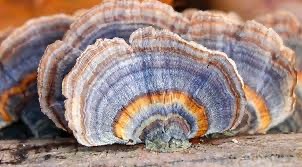
Your musings on this intricately detailed exploration are most welcome!
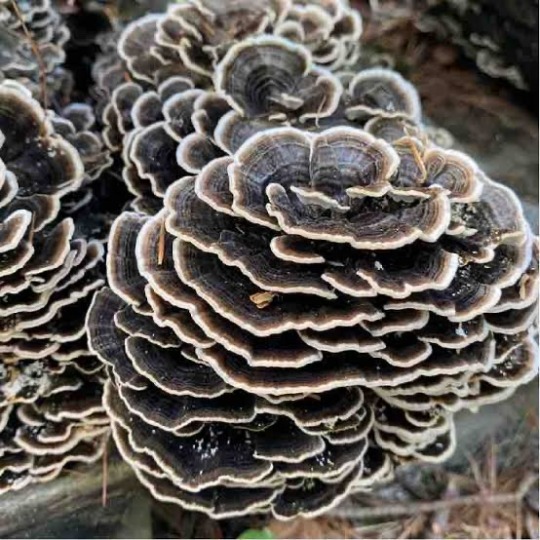
#science#biology#college#education#school#student#medicine#doctors#health#healthcare#mushrooms#turkey tail#chemistry#cancer#cancer treatment
26 notes
·
View notes
Text
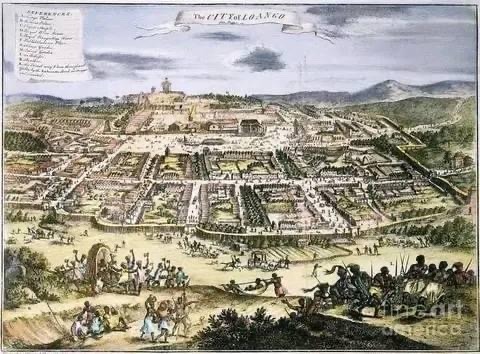
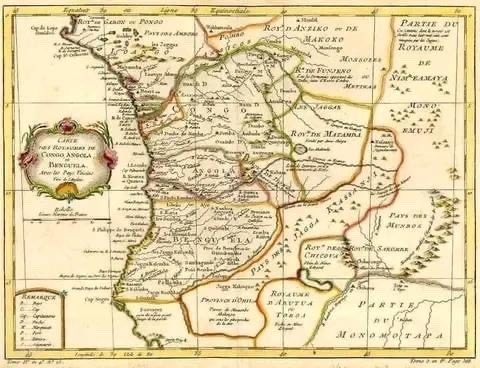
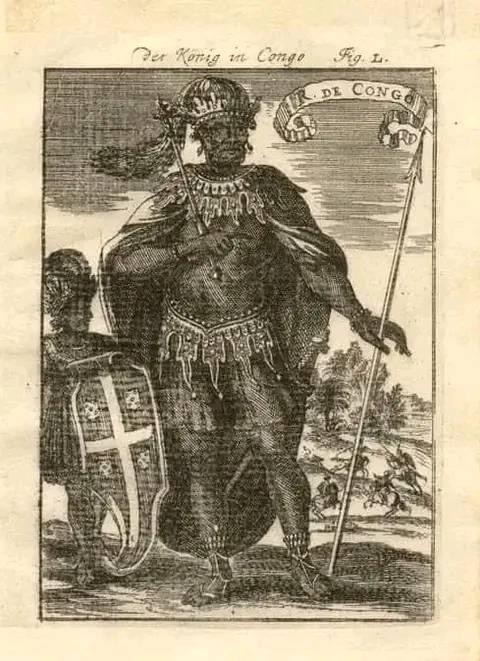

The entire African continent was an extremely civilized place by their own rich cultures, the time the first European travellers began discovering and later destroying her people and cultures.
“When they arrived in the Gulf of Guinea and landed at Vaida (in West Africa) the captains were astonished to find streets well laid out, bordered on either side for several leagues by two rows of trees; for days they travelled through a country of magnificent fields, inhabited by men clad in richly coloured garments of their own weaving! Further south in the Kingdom of the Congo, a swarming crowd dressed in `silk` and `velvet`; great States well-ordered, and down to the most minute details; powerful rulers, flourishing industries-civilized to the marrow of their bones. And the condition of the countries on the eastern coast- Mozambique, for example- was quite the same.”Leo Frobenius, `Histoire de la Civilisation Africaine`, quoted in Anna Melissa Graves, `Africa, the Wonder and the Glory,US, Black Classic Press, (originally 1942),pg4.
Portuguese missionaries wrote of the Kongo…” a well-organized political system with taxes and rates, there was a brilliant court,(and) a great civil service. The state constructed roads, imposed tolls, supported a large army and had a monetary system-of…shells, of which the Mani Congo…had a monopoly. The Congo Kingdom even had a few satellite states, for example the state of the Ngola (ie Ndongo) in present-day Angola. The original kingdom was about the size of France and Germany put together”.
“There is no doubting…the existence of an expert metallurgical art in the ancient Kongo; only the competition of objects from abroad and the slow deterioration brought about its decline. A further proof is provided by recent ethnographic documents. The Bakongo were aware of the toxicity of lead vapours. They devised preventative and curative methods, both pharmacological (massive doses of pawpaw and palm oil) and mechanical (exerting of pressure).
19 notes
·
View notes
Text
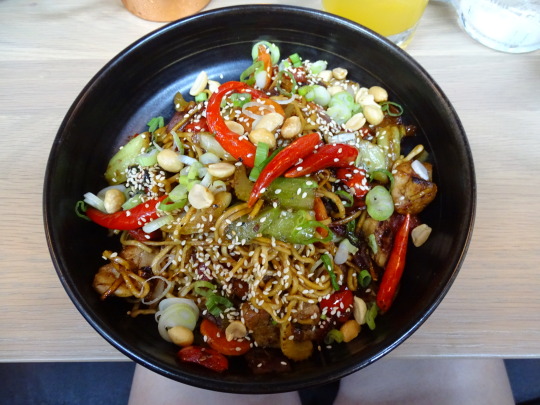
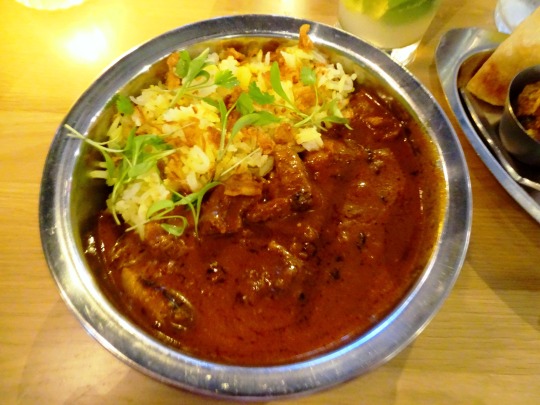

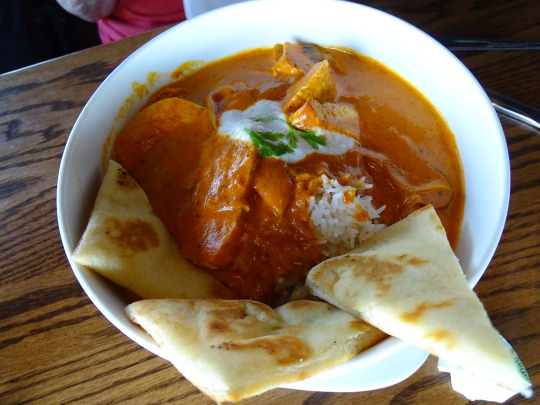
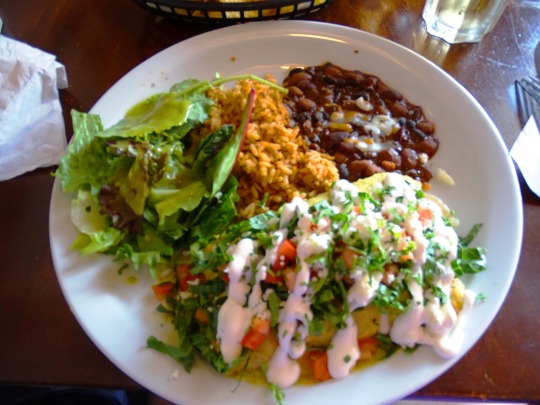
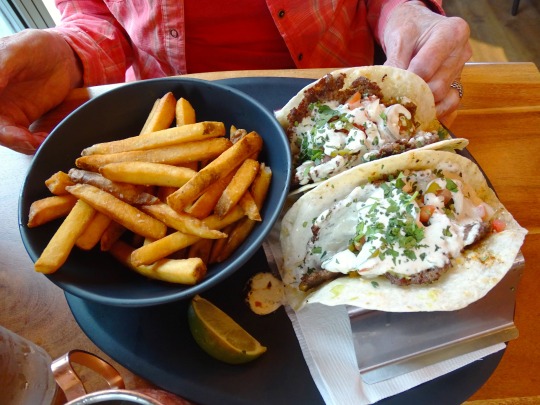
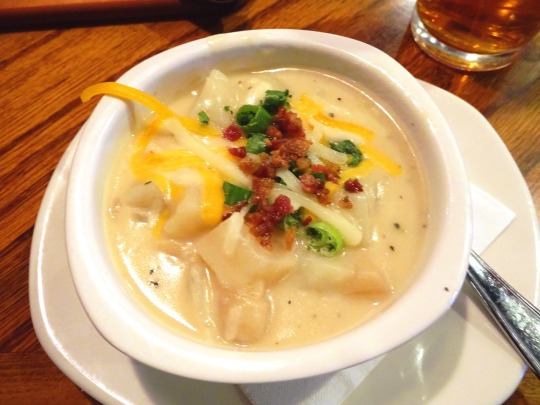
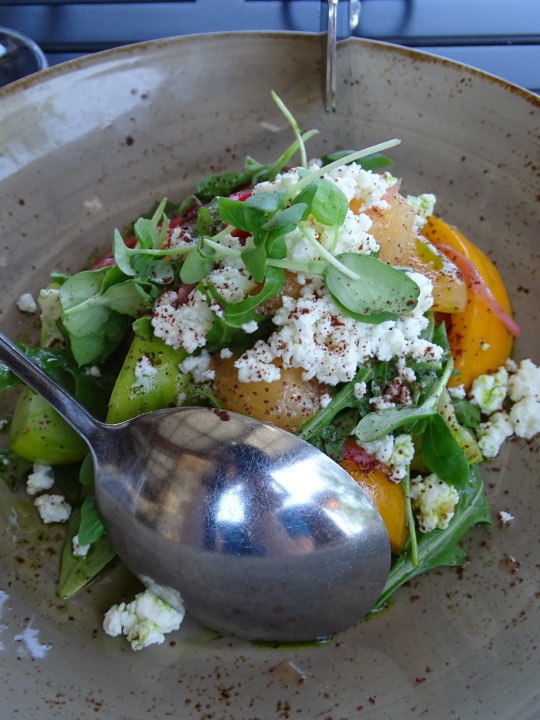
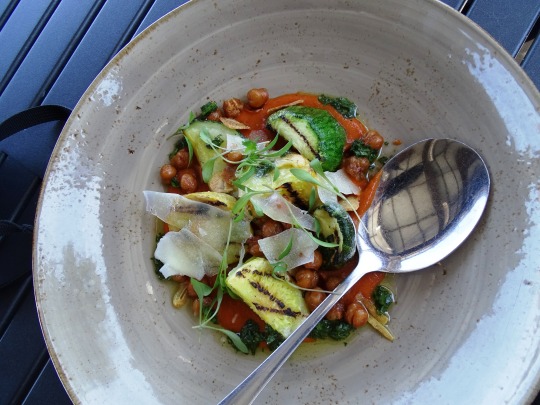
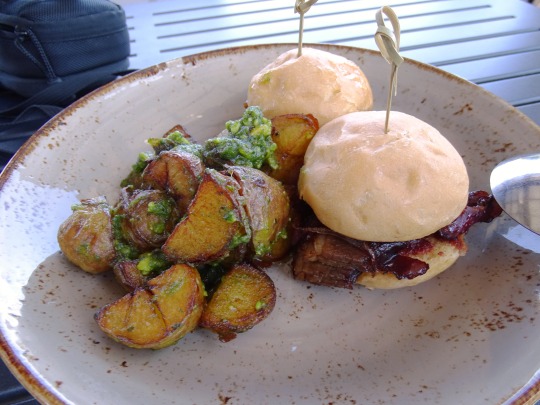
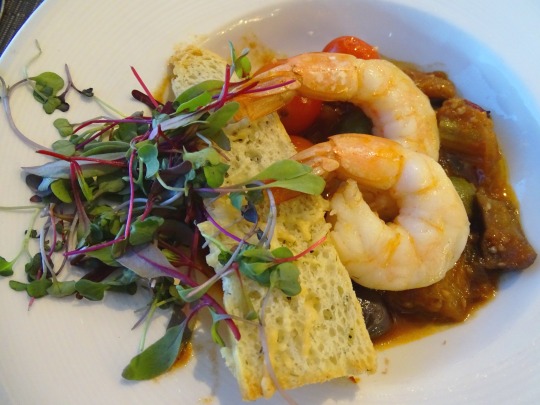
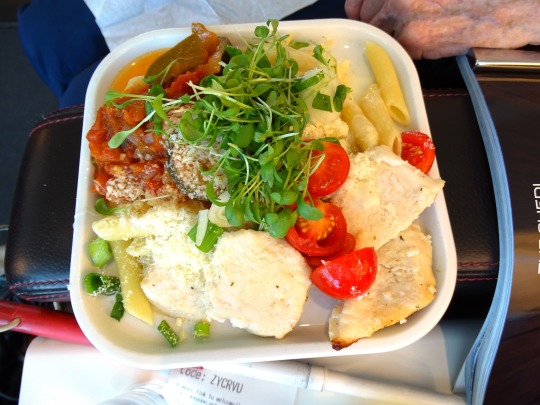
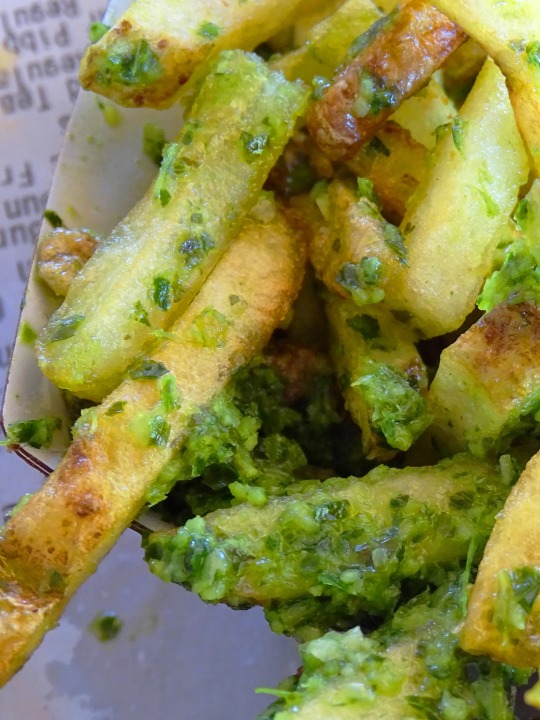
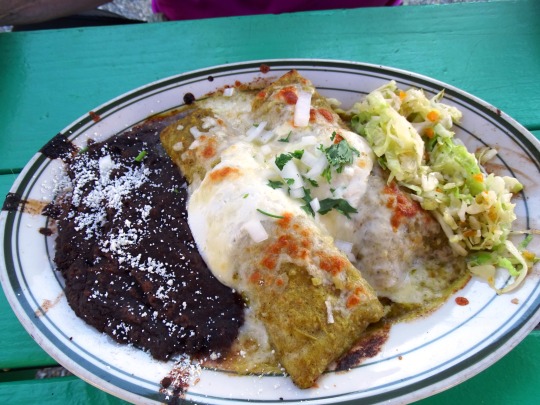
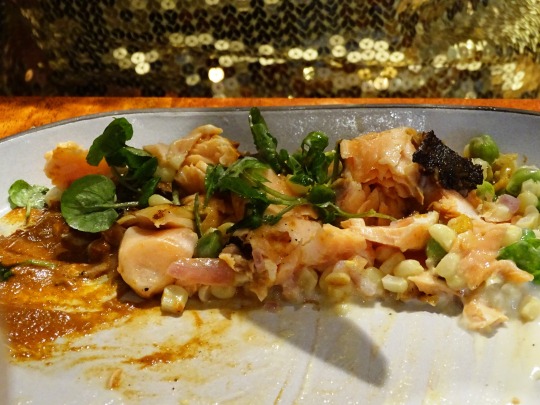
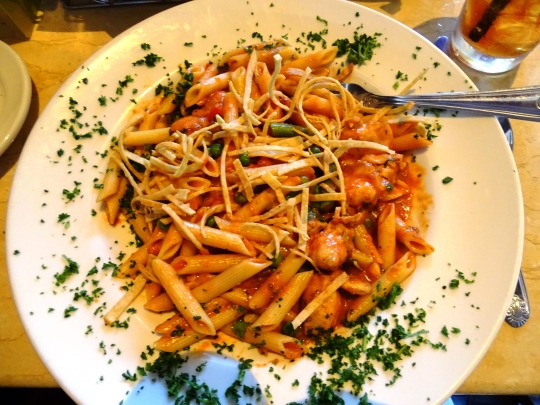
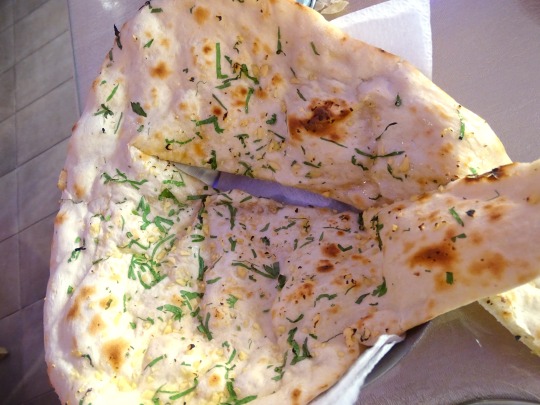
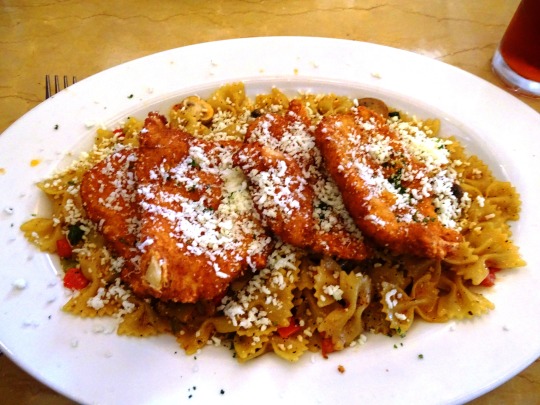
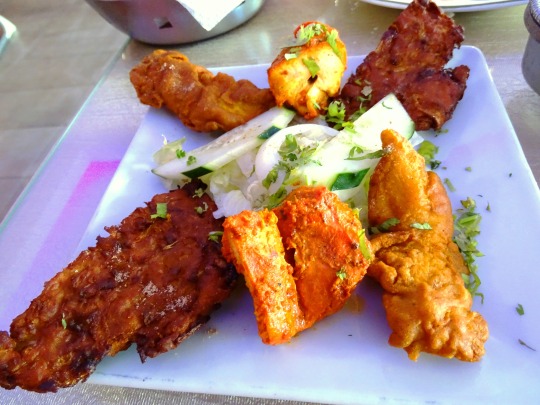
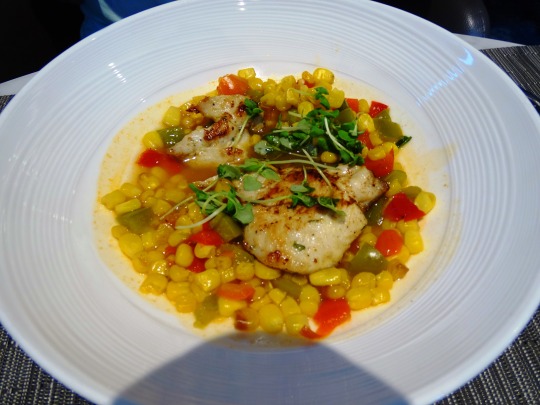
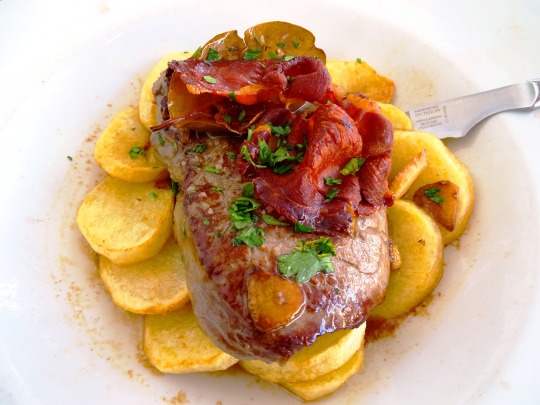
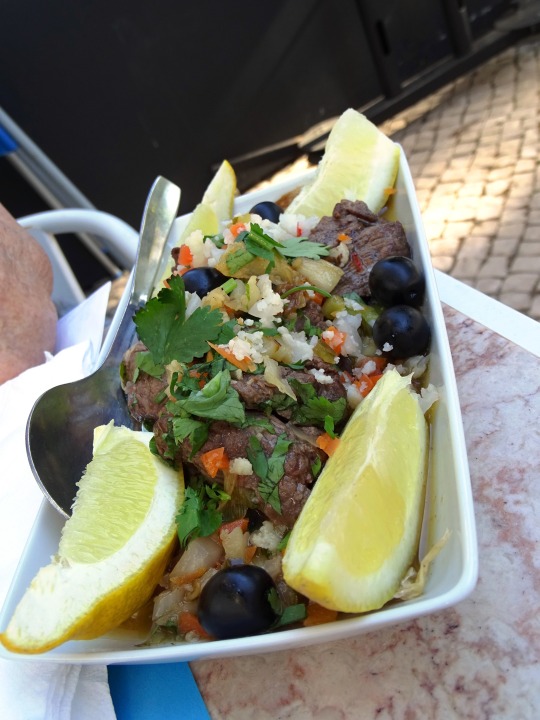
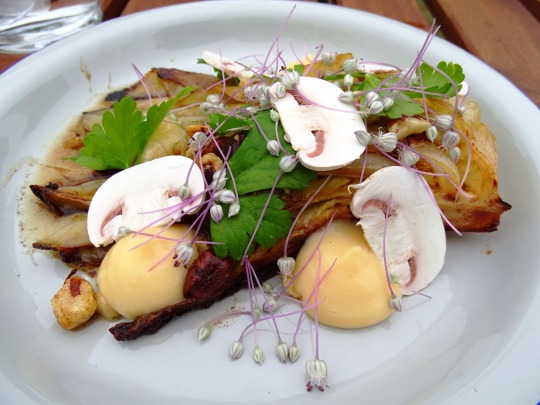
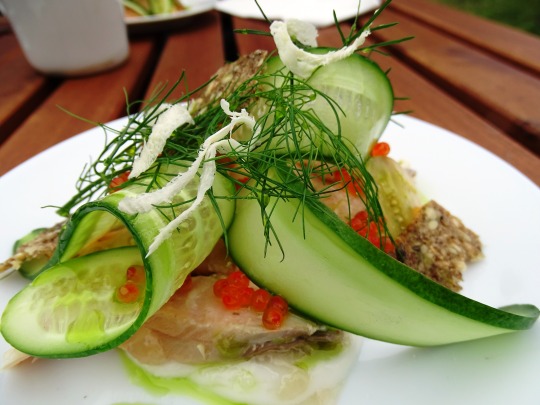
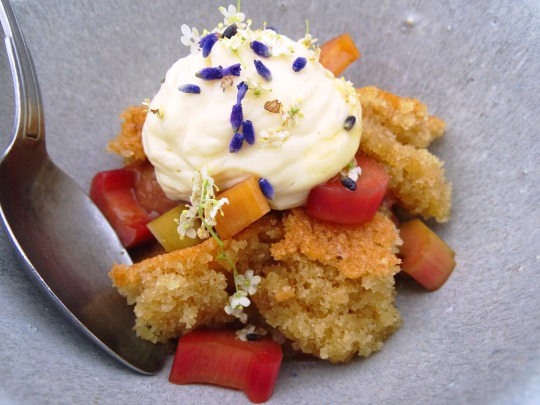
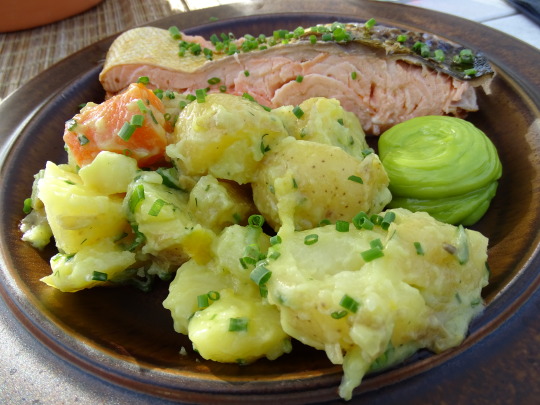
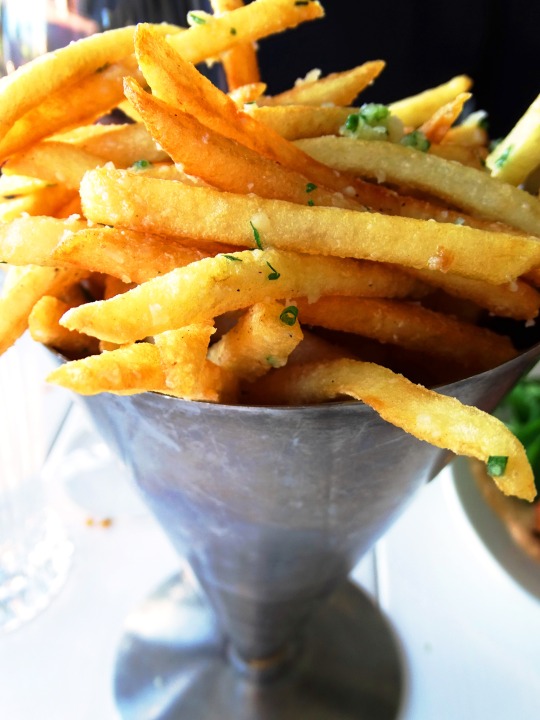

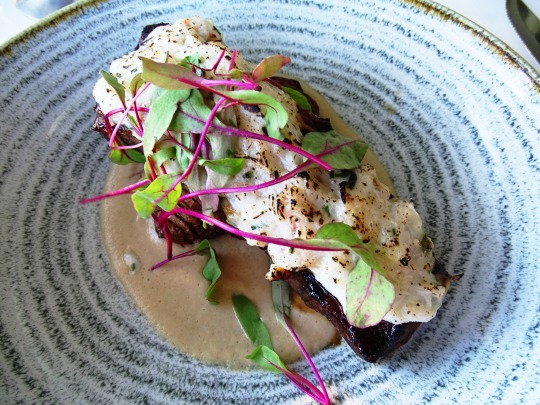
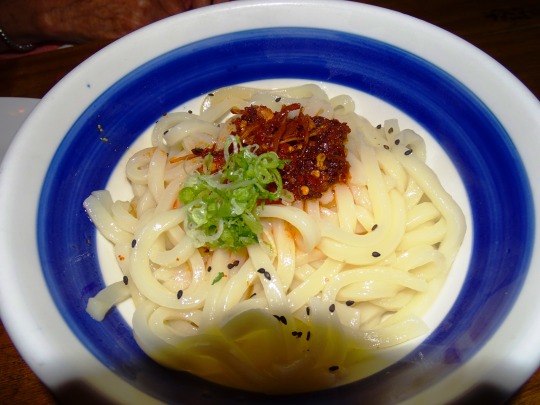
Herb Day
Herb Day, celebrated on the first Saturday in May, is a holiday that simply encourages planting herbs and celebrates people who have a culture of growing herbs. This year it falls on May 6. It was created and organized by the HerbDay Coalition, which is an organization of five non-profit groups. The holiday encourages people to learn more about herbs, cultivate them and use them more extensively in their daily lives.
History of Herb Day
Herb Day was created in 2006, a time when ‘herb’ was still a bit of a scary word. Medical doctors, naturopaths, and acupuncturists were not yet comfortable incorporating herbs into their practices, and the public knew very little about the subject. The HerbDay Coalition is made up of five non-profit organizations that wished to create a day for people to celebrate the healing power of herbs. On the first Saturday in May, we invite you to have your own celebration with the herbs you have in your garden or on your patio.
The world of plants was divided into trees, shrubs, and herbs by the ancient Greek philosopher Theophrastus. Herbs are also further classified into three groups, namely pot herbs, sweet herbs, and salad herbs. During the 1600s, pot herbs began to be referred to as vegetables as they were no longer considered only suitable for the pot.
In its early stages, botany was primarily a study of the pharmacological uses of plants, and by the Middle Ages, with the advent of humoral theory in medicine, the position was made that foodstuffs, having their own humoral qualities, could, in turn, alter the humoral temperaments of humans.
Popular plants parsley and sage were often used together for cooking in medieval times. A renowned therapeutic nutriment of that age, chicken broth, as well as green sauce, were usually prepared with parsley and sage.
Herb Day timeline
371 B.C. Theophastrus Is Born
Ancient Greek botanist Theophrastus is born.
1600s Pot Herbs Are Referred To As Vegetables
By the 1600s, selective breeding leads to changes in the physical and other compositions of the pot plants, hence they come to be known as vegetables.
2005 HerbDay Coalition Is Formed
A group of five nonprofit groups comes together to form the HerbCoalition.
2006 First-ever Herb Day
On May 6, the first-ever Herb Day is celebrated.
Herb Day FAQs
What is Herb Day?
Herb Day is a holiday that simply encourages planting herbs and celebrates people who have a culture of growing herbs.
When is Herb Day?
Herb Day is celebrated on the first Saturday in May every year.
Are herbs edible?
Yes. Most herbs are edible and even tasty.
Herb Day Activities
Learn more about herbs
Start a herb garden
Share the fun on social media
Take the opportunity of Herb Day to find out some more about herbs! There are so many nutritional properties to herbs that you could learn about!
You could start a small herb garden probably in your kitchen and devote yourself to seeing it grow. There’s nothing more rewarding than seeing hard work come to fruition.
Post pictures of your herb plants on social media with the #HerbDay hashtag! Encourage your friends to do the same as well as to learn something new.
5 Facts About Herbs And Spices
Red peppers are rich in Vitamin C
Red bell peppers are ripe green peppers
Nutmeg is a psychotropic
Vanilla is highly expensive
Turmeric is effective against Alzheimer’s
Red peppers are said to be unusually rich in Vitamin C, and a single serving of soup made from it contains more Vitamin C than lemon juice.
Red bell peppers are simply ripe green bell peppers.
Nutmeg serves psychotropic functions and a high enough dose can induce hallucinations.
Vanilla is among the two most expensive spices in the world, second only to Saffron.
Turmeric powder is very potent in managing symptoms of Alzheimer's, even more than drugs prescribed for it.
Why We Love Herb Day
Herbs are medicinal
Herbs are tasty
Herbs are eco-friendly
Herbs serve a great medicinal purpose and can be used to treat a variety of illnesses. Learn something new today and research what you can treat with herbs!
Some herbs and spices are tasty and add flavor to our everyday meals. They’re great for soups or roasts!
Herbs do not harm the environment and therefore growing them is safe! Get your green thumbs ready and start planting today!
Source
#Earls Chicken Biryani#vacation#Bourbon BBQ Chicken Pizza#Butter Chicken with Naan#Chicken Hunan Kung Pao#Chicken Enchilada#Smashing Taco#potato soup#tomato melon salad with feta#summer squash with chicken peas#Brisket Sliders with roasted Yukon Gold Potatoes#Eggplant Caponata with shrimps#Penne with Truffles Chicken#Louisiana Chicken Pasta#chicken with Succotash#Spicy Chicken Chipotle Pasta#Queso Fresco Entomadas Enchiladas#Garlic Fries#garlic and herb naan#USA#Spain#Filet Port#Portugal#original photography#Herb Day#4 May 2024#first Saturday in May#Herbday#travel
2 notes
·
View notes
Text
Al-Andalus: Unraveling the Literary and Scientific Odyssey, Paving the Way for the European Renaissance
In the corridors of time, the cultural crescendo of Al-Andalus emerges as a beacon of intellectual brilliance, weaving together the diverse threads of Muslim, Jewish, and Christian influences. This article endeavors to unveil the kaleidoscopic literary and scientific scene of Islamic Spain, exploring the prolific authors, their masterpieces, and the intellectual symphony that resonated through the Golden Age of Al-Andalus. At its core, this exploration is guided by two pivotal theses: the transformative impact of education and freedom of knowledge within Al-Andalus and its influential role in seeding the European Renaissance through the contributions of Muslim scholars.
Al-Andalus: A Cradle of Scientific Innovation
Before delving into the literary legacy of Al-Andalus, it is imperative to recognize the monumental scientific contributions that emanated from this Islamic territory. Muslim scholars in Al-Andalus were pioneers in various scientific disciplines, creating an intellectual atmosphere that laid the groundwork for advancements that would eventually find their way to the European Renaissance.
Mathematics and Astronomy: A Legacy of Precision
The House of Wisdom in Cordoba became a haven for mathematicians and astronomers, who not only preserved ancient Greek and Roman mathematical texts but also expanded upon them. Figures like Al-Khwarizmi, the "father of algebra," and Al-Zarqali, who refined the astrolabe, made enduring contributions. Their mathematical prowess and astronomical insights not only advanced knowledge within Al-Andalus but also set the stage for the scientific reawakening in Europe.
Medicine and Pharmacology: Healing Wisdom
The medical schools of Al-Andalus, notably in Cordoba and Toledo, were unrivaled in their pursuit of medical knowledge. Scholars like Al-Zahrawi, known as the "father of surgery," authored comprehensive medical encyclopedias that became essential references in both the East and the West. The advancements in pharmacology and surgical techniques pioneered in Al-Andalus had a profound impact on the evolution of medical sciences.
Geography and Cartography: Navigating New Horizons
The navigational prowess of Al-Andalus extended to geography and cartography, with scholars like Al-Idrisi creating detailed maps and atlases that influenced European explorers centuries later. The accuracy of their maps and the incorporation of geographical knowledge from various cultures underscored the cosmopolitan nature of Al-Andalus.
The Cultural Tapestry: Al-Andalus as a Crucible
Al-Andalus, a cultural melting pot that transcended political boundaries, flourished as a haven of intellectual exchange. The coexistence of Muslims, Jews, and Christians fostered an environment where ideas traversed linguistic and religious barriers, resulting in a harmonious blend of cultural influences. This rich amalgamation laid the foundation for an unparalleled literary and scientific renaissance that echoed through the corridors of time. Central to this efflorescence was an educational ethos that transcended religious affiliations, fostering an environment where the pursuit of knowledge was paramount.
Poetry: Ibn Zaydun and the Eloquent Echoes of Love
At the heart of Al-Andalus' literary and scientific brilliance lies the artistry of poetry, a medium through which emotions and intellect found eloquent expression. Ibn Zaydun, a luminary from Cordoba, infused his verses with a passionate fervor that transcended cultural boundaries. His love poems, a marriage of Arab and Andalusian influences, resonate with the intensity of human emotions, becoming timeless echoes of the region's cultural dynamism. The intellectual freedom and education prevalent in Al-Andalus allowed poets like Ibn Zaydun to explore and articulate complex emotions with a level of sophistication rarely witnessed elsewhere.
Similarly, Al-Mutanabbi, although not native to Al-Andalus, carved his niche in the poetic annals. His verses, adorned with political insight, expressions of love, and panegyrics for patrons, showcased the breadth of themes explored by poets of the time. Through their poetry, these luminaries painted a vivid portrait of the emotional landscape of Al-Andalus, showcasing how an educated and enlightened society nurtured creative expression.
Philosophical Peaks: Ibn Hazm and Ibn Rushd's Legacy
As the poets flourished, philosophers like Ibn Hazm and Ibn Rushd elevated Al-Andalus to new intellectual heights. Ibn Hazm's "Tawq al-Hamama" (The Ring of the Dove) transcends the boundaries of conventional love stories. Embedded within its narrative is a profound exploration of ethics and societal norms, reflecting the cultural synthesis prevalent in Al-Andalus. The flourishing educational institutions allowed thinkers like Ibn Hazm to engage in intellectual pursuits, contributing to the development of philosophical narratives within their works.
Ibn Rushd, known in the West as Averroes, left an indelible mark on Islamic philosophy. His extensive commentaries on Aristotle's works not only served as bridges between Greek thought and Islamic understanding but also as catalysts for the intellectual pursuits of the Renaissance. While not focusing on fictional narratives, his influence on the philosophical discourse of Al-Andalus reverberates through the ages. The intellectual freedom of Al-Andalus allowed philosophers to engage in a free exchange of ideas, paving the way for profound philosophical reflections.
Anthological Heights: Al-Isfahani and "Kitab al-Aghani"
Amidst this intellectual renaissance, Abu al-Faraj al-Isfahani's "Kitab al-Aghani" (The Book of Songs) stands as a monumental anthology. Beyond being a collection of poetry, it serves as a multifaceted repository of anecdotes, stories, and cultural insights. This literary compendium not only showcases the diversity of voices in Al-Andalus but also provides a panoramic view of the cultural, social, and artistic tapestry that defined the era. The freedom of knowledge and the accessibility of education allowed for the compilation and preservation of diverse cultural narratives within anthologies like "Kitab al-Aghani."
Prose and Philosophical Allegories: Ibn Tufail and Al-Ma'arri's Enlightenment
Beyond the lyrical verses and anthologies, Al-Andalus embraced the realm of prose and philosophical allegories. Ibn Tufail's "Risalat Hayy ibn Yaqzan" (The Epistle of Hayy ibn Yaqzan) serves as an early venture into philosophical storytelling. The allegorical journey of a boy's self-discovery on a deserted island explores profound themes of isolation, enlightenment, and the pursuit of knowledge, foreshadowing the later emergence of the philosophical novel. The intellectual atmosphere of Al-Andalus, marked by educational freedom, provided the fertile ground for the creation of allegorical narratives that explored complex philosophical ideas.
In the realm of prose, Abu al-Ala al-Ma'arri's compositions embodied skepticism and asceticism. His poetry and prose challenged prevailing societal norms and religious orthodoxy, reflecting a courageous intellectual spirit that questioned established beliefs. Through their works, Ibn Tufail and Al-Ma'arri became torchbearers of enlightenment in Al-Andalus, illustrating how a society rich in educational opportunities could produce individuals who questioned and reshaped societal norms.
Anecdotal Archives: Ibn al-Jawzi's Insights into History
Ibn al-Jawzi's "Sifat al-Safwa" (The Characteristics of the Elect) contributes to the literary panorama with biographies and anecdotes of notable figures from the Islamic world. This work, while not a fictional narrative, serves as a historical mosaic, offering glimpses into the lives of influential personalities. It provides a nuanced understanding of the historical and moral landscape of Al-Andalus, showcasing the diversity of thought that thrived in the region. The availability of education and the preservation of historical anecdotes within works like "Sifat al-Safwa" underscore how an educated society values its historical narrative.
Al-Andalus and the Seeds of the European Renaissance
While Al-Andalus reached the zenith of its intellectual prowess, its influence transcended the borders of the Iberian Peninsula. Islamic Spain played a pivotal role in sowing the seeds of the European Renaissance, and its impact on European scholars cannot be overstated. The interconnectedness of cultures, fostered by the educational ethos of Al-Andalus, facilitated the transmission of knowledge that would later catalyze the intellectual rebirth of Europe.
The scientific contributions of Al-Andalus, especially in the fields of mathematics, astronomy, medicine, and cartography, acted as catalysts for the Renaissance in Europe. Muslim scholars, committed to the pursuit of knowledge, meticulously translated and preserved ancient Greek texts, introducing European scholars to a wealth of scientific wisdom.
Mathematics and Astronomy: The Legacy of Al-Khwarizmi and Al-Zarqali
Al-Khwarizmi's pioneering work in algebra and algorithmic processes provided European mathematicians with foundational principles. The term "algebra" itself is derived from his influential treatise "Al-Kitab al-Mukhtasar fi Hisab al-Jabr wal-Muqabala" (The Compendious Book on Calculation by Completion and Balancing).
Al-Zarqali's advancements in astronomy, including his refinement of the astrolabe, influenced European navigators and astronomers. The precision of Al-Andalusian astronomical observations laid the groundwork for the later scientific revolution in Europe.
Medicine: Al-Zahrawi's Surgical Innovations
Al-Zahrawi, known in the West as Albucasis, revolutionized the field of surgery with his comprehensive medical encyclopedias. His detailed descriptions of surgical instruments and techniques became foundational texts for European surgeons during the Renaissance, influencing medical practices for centuries.
Geography and Cartography: Al-Idrisi's Maps Charting New Frontiers
The meticulous maps and atlases created by Al-Idrisi provided European explorers with accurate representations of the known world. His "Tabula Rogeriana," a world map commissioned by King Roger II of Sicily, became a reference for European cartographers navigating uncharted territories.
The Renaissance Echo: A Resurgence of Knowledge
The translation movement facilitated by Islamic Spain's commitment to education and knowledge brought Greek classics, scientific treatises, and philosophical works to European scholars who were on the cusp of a cultural renaissance. The knowledge amassed in Al-Andalus laid the foundation for the revival of learning in Europe, sparking a period of unparalleled creativity, scientific inquiry, and artistic flourishing.
Figures like Gerard of Cremona, who translated numerous Arabic works into Latin, and scholars like Adelard of Bath, who traveled to Al-Andalus to study, exemplify the profound impact of Islamic Spain on European intellectual development. The universities that emerged across Europe drew inspiration from the educational institutions of Al-Andalus, fostering an environment where critical thinking and the pursuit of knowledge were paramount.
The influence of Al-Andalus on the European Renaissance is not merely a historical footnote; it is a testament to the enduring power of education, intellectual freedom, and the cross-pollination of ideas. The Renaissance, with its fervor for knowledge and cultural revival, owes a debt to the enlightened society that thrived on the Iberian Peninsula.
In essence, the educational vibrancy of Al-Andalus not only shaped the literary and scientific landscape of Islamic Spain but also played a pivotal role in the intellectual awakening that would redefine the course of European history. The echoes of Al-Andalus reverberate through the annals of time, reminding us that the pursuit of knowledge knows no boundaries and that a society enriched by education can leave an indelible mark on the tapestry of human civilization.
List of books:
Poetry:
Ibn Zaydun - Selected Poems: Explore the love poetry of Ibn Zaydun, a prominent poet of the Umayyad Caliphate in Cordoba.
Al-Mutanabbi - Diwan Al-Mutanabbi: A collection of poems by the renowned Arab poet Al-Mutanabbi, offering insights into politics, love, and panegyrics.
Philosophy:
3. Ibn Hazm - Tawq al-Hamama (The Ring of the Dove): Dive into the philosophical and literary aspects of love in Ibn Hazm's work.
Ibn Rushd - The Incoherence of the Incoherence: Explore Ibn Rushd's philosophical ideas through his critique of Al-Ghazali's work, "The Incoherence of the Philosophers."
Narrative and Allegory:
5. Ibn Tufail - Risalat Hayy ibn Yaqzan (The Epistle of Hayy ibn Yaqzan): Delve into the allegorical novel by Ibn Tufail, exploring themes of isolation, self-discovery, and philosophy.
Ibn al-Jawzi - Sifat al-Safwa (The Characteristics of the Elect): Read anecdotes and biographies of notable figures from the Islamic world in this historical work.
Historical Chronicles:
7. Ibn Khaldun - Al-Muqaddimah (The Introduction): Gain insights into historical patterns, governance, and societal dynamics through Ibn Khaldun's seminal work.
Anthologies and Collections:
8. Al-Isfahani - Kitab al-Aghani (The Book of Songs): Explore this anthology, which includes poetry, anecdotes, and stories, offering a glimpse into the cultural and social life of the time.
Ibn Gabirol - Fons Vitae (The Fountain of Life): A philosophical work by Ibn Gabirol that explores Neoplatonic themes.
General Exploration of Literature:
10. The Book of One Thousand and One Nights (Arabian Nights): While its origins are diverse, this collection was compiled and expanded upon during the time of Al-Andalus.
2 notes
·
View notes